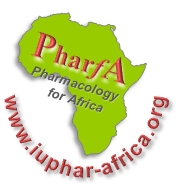 Education on how to ensure safe and effective use of medicines is vitally important for patients and health services.
Education on how to ensure safe and effective use of medicines is vitally important for patients and health services.Registration and abstract submission on the themes below is now open for the International Symposium on Medicines and Patient Safety in partnership with Pharmacology for Africa. The symposium will take place on Wednesday 5th November 2014 in Kigali, the capital city of Rwanda, under the auspices of the College of Medicine and Health Sciences of the University of Rwanda.
The 3 major themes of the symposium are:
- Educating health professionals in safe and effective use of medicines
- Regulating drugs, including pharmacovigilance and quality of medicines
- Reducing harm from high risk medicines and in patients with high risk conditions
| University Hospital, Kigali |
- education in pharmacology and clinical pharmacology
- developing good prescribing skills
- developing rational treatment guidelines
- drug regulation including quality of medicines
- Drugs and Therapeutics Committees
- medicines for non-communicable diseases
- pharmacovigilance
- safe systems for using medicines for high risk therapeutic areas, including retroviral disease, maternal and paediatric health, cancer, and renal disease
- traditional medicines
| View over Kigali hills |
These include doctors, pharmacists, nurses and managers working in referral, district and community hospitals, community pharmacists, experts interested in the safe regulation and supply of medicines, health professionals interested in pharmacovigilance, and educators interested in postgraduate and undergraduate training of health professionals in clinical pharmacology, therapeutics and safe dispensing.
The symposium will also be of interest to professionals working in NGOs and patient safety organisations concerned with public health and with disease prevention and treatment.

